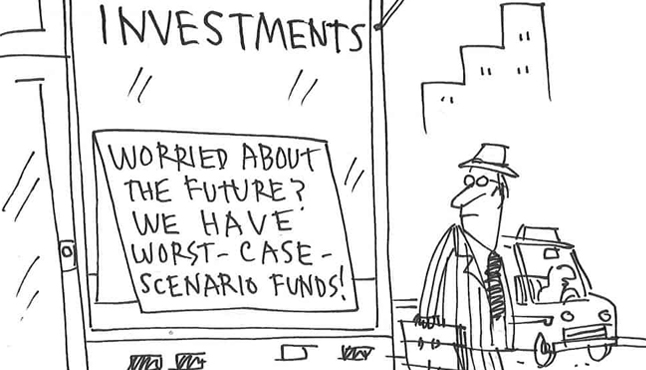Hooked on Fear, Optimism and Financial Happiness

Which do you fear more? Living too long or COVID-19?
We suspect more people would pick the latter option than the former. Anders Sandberg, computational neuroscientist from Oxford University, described how we have learnt to be fearful of the tangibles but not the abstract notions. This learning is reinforced by immediate rewards such as avoiding sudden death. To run out of money when one lives too long is not as urgent and concrete threat as a virus that has made the headlines for killing individuals within weeks.
Everything is relative though. Death is not always the most feared. In an US-based poll, Americans ranked debt as most feared in their daily lives. Death was second place but tailed more than 10% behind. In a local survey, Singaporeans reported fearing germs more than death.
The nature of our fear may explain the customer resistance financial advisers often encounter. The way of dying is scarier than death itself. Hospitalization plans are thus easier to sell than life cover. In addition, our fear of loss makes us rather forgo gains than risk losses. As a result, we prefer status quo to change. An unskilled financial adviser then falls into the trap of fear of rejection, product pushing and objection handling.
Also contributing to the resistance is optimism bias, an evolutionary survival trait in most of us who are not clinically depressed. The belief that “it will never happen to me” is persistent. In fact, if statistics suggest a more positive view of the future than one’s own belief, the latter is even adjusted to be in line with the statistics. However, the reverse does not happen. After all, despite the fact that 31% of all deaths worldwide is due to cardiovascular disease, many are not in a rush to eliminate sugary drinks, tobacco or meat from their daily lives.
It turns out that whether fear and optimism bias drive behavior depends on visibility. The public’s discriminatory response to COVID-19, even towards their own fellow citizens, reflects fear instead of optimism bias. While people do not usually warm up to facts and figures, sensational headlines and real-time breaking stories crafted to generate revenue-generating readership, do an excellent job in triggering emotions and urgency.
Likewise, until our financial future is sensationalized, we remain unfazed and passive despite the high probability of living longer than we can afford. Financial advisers can use scenarios to enrich their customers’ imagination of the otherwise abstract future. However, be forewarned of simplistic and single-minded extrapolations. Life is random. It would be dangerous to allay fears based on hypothetical scenarios with single outcomes. 360F advisory applications simulates hyper-personalized and multi-risk scenarios across a broad time horizon so that one’s financial future is as real as it gets.
In moderation, fear and optimism bias have their evolutionary purposes. Left unchecked, they become obstacles to financial happiness, a self-defined state of financial wellness which many aspire to attain. It is not just the customer’s own fears and bias at fault. If the customer’s financial adviser fears rejection, resists new knowledge and ignores transformational technology, the customer will never improve his or her chance of achieving financial happiness.
Some thoughts to share? Write us at clarie.kwa@360f.com


